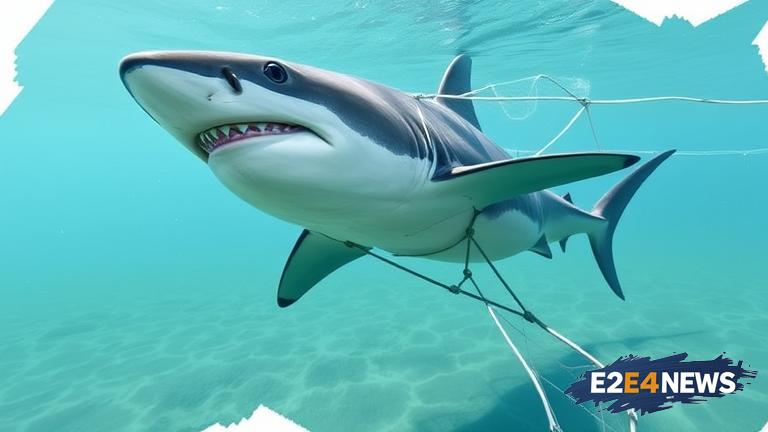In a bid to strike a balance between human safety and marine conservation, the New South Wales government has initiated a shark net removal trial. This innovative approach aims to assess the effectiveness of alternative safety measures, such as drones and surveillance systems, in mitigating shark attacks. The trial, which commenced on July 27, 2025, will see the removal of shark nets from several beaches in NSW. The decision to remove the nets has been met with both support and criticism from the community, with some expressing concerns about the potential risks to human safety. However, proponents of the trial argue that the nets have been responsible for the deaths of numerous marine animals, including endangered species. The NSW government has assured the public that the trial will be closely monitored, and the results will be used to inform future decisions on shark mitigation strategies. The use of drones and surveillance systems is expected to provide real-time monitoring of shark activity, enabling authorities to respond quickly and effectively in the event of a shark sighting. The trial is also expected to provide valuable insights into the behavior and migration patterns of sharks, which will inform the development of more effective conservation strategies. The removal of shark nets is seen as a crucial step towards reducing the bycatch of non-target species, which has been a major concern for marine conservationists. The trial has sparked a heated debate about the effectiveness of shark nets in preventing attacks, with some arguing that they provide a false sense of security. Others have pointed out that the nets can be damaging to the marine ecosystem, causing harm to not only sharks but also other marine animals. The NSW government has emphasized that the trial is not a permanent removal of the nets, but rather an opportunity to explore alternative safety measures and assess their effectiveness. The results of the trial will be closely watched by other states and countries, which are also grappling with the issue of shark conservation and human safety. The use of technology, such as drones and surveillance systems, is seen as a key component of the trial, providing a more efficient and effective way to monitor shark activity. The trial is also expected to provide valuable insights into the economic benefits of shark conservation, with the potential to boost tourism and support local businesses. The removal of shark nets has been welcomed by many in the community, who see it as a step towards a more sustainable and environmentally-friendly approach to shark mitigation. However, others have expressed concerns about the potential risks to human safety, and the need for more research and data on the effectiveness of alternative safety measures. The NSW government has assured the public that the trial will be conducted in a safe and responsible manner, with the safety of beachgoers remaining the top priority. The trial is expected to run for several months, with the results to be released in early 2026. The outcome of the trial will have significant implications for shark conservation and human safety, not only in NSW but also globally. The use of alternative safety measures, such as drones and surveillance systems, is seen as a key component of a more sustainable and environmentally-friendly approach to shark mitigation. The trial has sparked a renewed focus on the importance of marine conservation, with the need to protect not only sharks but also other marine animals. The removal of shark nets is seen as a crucial step towards reducing the impact of human activities on the marine ecosystem, and promoting a more sustainable and environmentally-friendly approach to shark mitigation.
